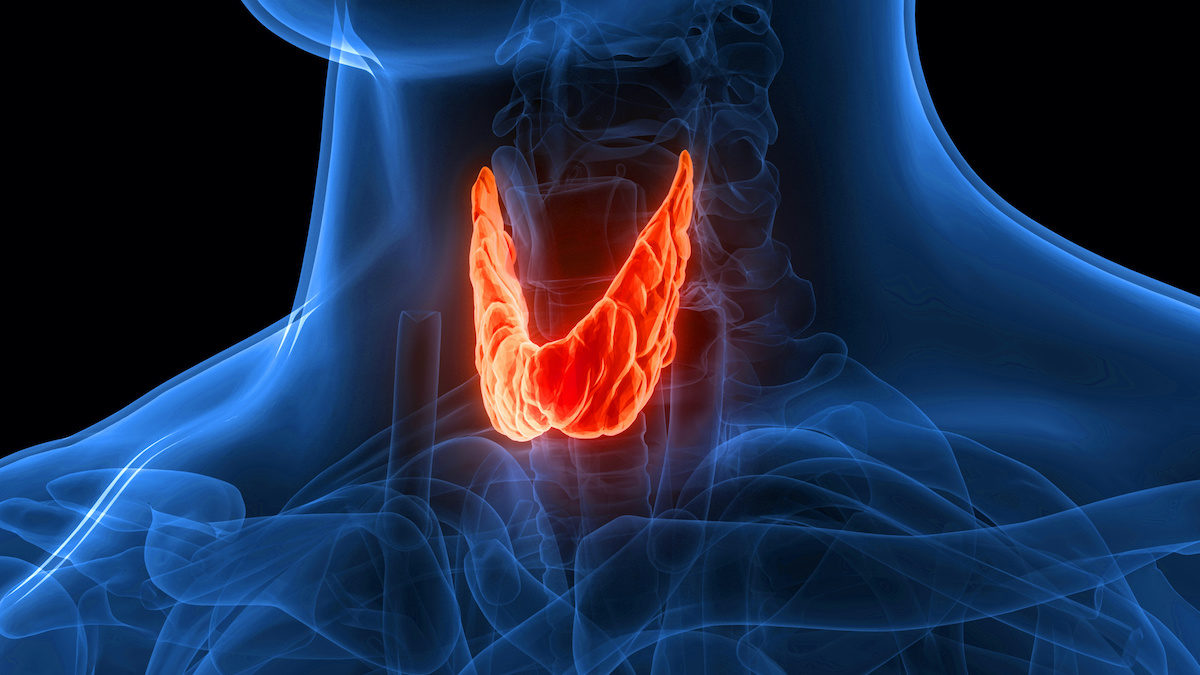Why Do I Feel Tired All the Time? Experts Share the Possible Causes

How often do you struggle to get through the day without relying on coffee? We all know that staying up late to tackle work deadlines is bound to leave you craving a caffeine fix the next day, but if you’re getting a full eight hours of sleep and still feeling like you have little energy, there may be a deeper underlying cause.
According to recent YouGov figures, three in five women (61 percent) in the UK say they feel tired when they wake up, even when they get a lot of sleep, while around half (49 percent) of men say the same.
Since the symptoms of ongoing tiredness can be caused by a variety of different medical issues and deficiencies, it can often be difficult to pinpoint the problem. To help clear matters up, we asked some experts to identify five of the most common causes of fatigue, plus the steps you can take to fight it.
5 Reasons Why You Might Feel Tired All The Time
1. Iron Deficiency Anemia
Iron deficiency anemia is a condition where a lack of iron in the body leads to a reduction in the number of red blood cells. Women are more at risk of developing it, with GP Dr Sarah Brewer warning that “around one in three women of reproductive age is affected.”
Anemia is usually brought on by “heavy, frequent periods, pregnancy, poor diet or a poor ability to absorb and store iron,” she says, and alongside tiredness, people with the condition “may notice that they feel dizzy, have shortness of breath and a pale complexion.”
A simple blood test can be done by your GP to determine whether you’re anemic. “Make sure you specifically request a ferritin test, as this shows how much stored iron the body has to draw on, and not just how much is in the blood,” urges Brewer. To combat the issue, your GP might prescribe iron supplements, and they may also urge you to make lifestyle changes, such as eating more iron-rich foods like fish, nuts, beans, eggs and green vegetables.

2. Diabetes
Fatigue is a common symptom of diabetes and can result from blood sugar fluctuations and other symptoms and complications of the condition. ”Other signs include feeling very thirsty, urinating frequently and unexplained weight loss,” says Brewer.
Diabetes is a chronic health condition that causes the level of sugar in the blood to spike, and it continues to be one of the most common health issues in the UK. Figures from Diabetes UK show the number of people with the condition has doubled in the last 15 years, with Type 2 diabetes accounting for 90 percent of all cases.
If you’re concerned you may have symptoms, it’s advisable to speak to your GP who can check your urine and arrange a blood test to measure your blood sugar levels. You may be prescribed insulin or medication to manage your blood sugar, but lots of people with Type 2 diabetes don’t take any medication at all, and they treat the condition by eating well and exercising.
3. Poor Diet
Lack of nutrition can quickly make you feel tired – and regularly binging on sugary treats can have the same effect. “You’ll be surprised how much better you feel if you eat a healthy diet,” says nutritionist Rob Hobson. “Cut out sweet, stodgy, fatty foods and eat more fresh fruit, vegetables and complex carbohydrates such as whole grain bread, wholemeal pasta and brown rice.
“Ideally, you need to include five portions of fruit or veg per day, not counting potatoes,” he continues. “This sounds like a lot, but is easily done if you drink a glass of orange juice with breakfast, snack on an apple mid-morning, have a side-salad with your lunch and one or two portions of veg with your evening meal.”
The B-group of vitamins are especially important to consider as they’re needed to produce energy in the body, says Hobson. Dietary sources of B-group vitamins include yeast extract, wheat germ, wholegrain bread and cereals – but it’s wise to take a daily multivitamin, to be certain that you’re getting all the nutrients you need.

4. Coeliac Disease
The health of your gut can have a significant impact on your energy levels. Around one in 100 people in the UK are thought to have coeliac disease, a long-term autoimmune disorder where consuming even tiny amounts of gluten triggers damaging – and potentially serious – reactions in the small intestines.
Researchers aren’t entirely clear what causes the immune system to attack healthy tissue in the gut, but a combination of genetics and the environment appear to play a part. “Other symptoms you might notice are diarrhoea, bloating and wind, stomach pain and unexplained weight loss,” says Brewer. It’s also a lot more common than you think, too. “Worryingly, it’s thought that around 90 percent of coeliac sufferers don’t know they have it.”
There’s no cure for coeliac disease as such, but following a strict gluten-free diet helps to keep the uncomfortable symptoms at bay. If you think you might have an issue with your gut, the best thing to do is to speak to your GP, rather than self-diagnosing. The symptoms could be down to more common causes like IBS, but blood tests – which detect certain antibodies that are present in people with coeliac disease – can give you a clear diagnosis.
5. Underactive Thyroid
According to the NHS, hypothyroidism – or an underactive thyroid – affects one in 70 women and one in 1,000 men in the UK. It occurs when the thyroid gland doesn’t make enough thyroid hormones to meet your body’s needs.
The thyroid gland is responsible for producing the hormones which regulate the body’s metabolism and digestive system, and if it’s out of whack, the fluctuating levels of these hormones can cause lethargy, as well as other key warning signs. “Alongside fatigue, you might notice sensitivity to cold, weight gain, constipation and depression,” says Brewer.

If you’re concerned, Brewer says you should discuss your symptoms with your GP, who can arrange a blood test to check your thyroid function. Treatment generally involves taking hormone replacement tablets, called levothyroxine, which can help you to lead a healthy and fatigue-free life.
The bottom line? Occasional tiredness when you’re busy, unwell or stressed is a part of being human, but if it persists for more than a couple of weeks, it’s important to see your doctor to identify any potential medical causes that need investigation and treatment.


















